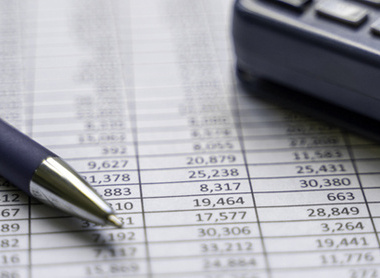5 simple budgeting tips
Do you have a personal budget? This article features plenty of practical budgeting advice and some key benefits of budgeting, as well as five simple budgeting tips to help you get started.
Find out some ways to reduce your energy bills at home and how we can help support you through rising energy costs.
Here we have some great energy-saving tips to help you reduce your heating and electric bills. If you're struggling with finances and budgeting, our handy advice reveals how to save energy at home and we'll also outline our means-tested energy costs payment.
Maintaining the efficiency of your radiators will help to ensure they’re working properly throughout the colder months. Bleeding and balancing radiators is crucial to ensure they’re heating up properly and aren’t full of any nasty sludge that may be causing cold spots. You should aim to carry out a health check for your radiators before the colder season when they’re likely to be used regularly.
Warm air can escape through floorboards, doors, windows and even chimneys. It’s important to keep your rooms free from draughts to ensure no heat escapes throughout the day. Invest in draught excluders, draught-proofing strips or even chimney excluders to close the gaps and holes where heat may leave your home. This will help to conserve energy and keep your heating bills lower.
While the one-off cost of a new appliance may be a substantial cost, the year-on-year savings you could achieve will be worth the upfront spend. Aim for washing machines and fridge freezers with an A rating, as these typically use much less energy than older models and can help to consistently reduce your energy bills.
If you’re struggling to make ends meet when it comes to energy costs, we may be able to assist. Our £450 means-tested energy costs payment can be put towards the cost of heating, water and electric bills and also fund generators and air conditioning units if you’re based outside of the UK.
If the emotional burden of energy bills is affecting you and your family’s mental health, our team can help you manage your concerns.
Turning appliances off at the plug can help you to save money on your energy bills. After using appliances such as kettles, microwaves, phone chargers or hairdryers, simply turn the switch off at the wall to ensure you’re not wasting excess electricity.
Carpets, fabric sofas, curtains and rugs are great at absorbing heat so will keep your rooms warmer for longer if you incorporate these into your space. Invest in rugs if you have wooden floors to trap in the heat and prevent draughts that may arise from floorboards. This is a great way to keep your house warmer for longer.
You can reduce your water bills in your home by making these few changes:
Avoid placing wet clothes, towels and bed sheets on your radiators as these will block the heat from your radiators and prevent your rooms from heating up efficiently. This can also be more expensive as your radiators will have to work even harder to compensate for the heat loss caused by the wet washing.
Drying clothes on radiators can also release excess moisture in the area, causing mould and mildew.
If your energy bills are becoming unmanageable, it’s a good idea to compare energy suppliers as you may be able to save a proportion of money by switching. Using comparison sites such as MoneySuperMarket can help you to compare estimated yearly and monthly costs to make sure you’re getting the best deal for your energy usage.
1. Opt for LED bulbs as these are more energy efficient and have a longer life span
2. Invest in a heated clothes airer instead of using a tumble dryer
3. Make sure you turn off radiators in rooms that are often unused, such as offices or spare bedrooms
4. If you have a combi boiler, reduce the flow temperature to 60 degrees
5. Install a smart meter to help you see what you're spending the most money on
6. Slow cookers use just 9% of the energy used by a large oven, so are a great way to cut costs
7. Buy smart plugs so you can schedule when your devices are turned on and off.
If you’re worried about energy costs and would like to speak to someone about the support we offer, don’t hesitate to reach out and speak to a member of our team.
Take a look at our useful tools below to help get your finances on track.
Our free tools will help you to create an in-depth budgeting plan, easily showing a breakdown of income and expenditure.

If you're looking to get a hold of your savings and organise your finances, this tool is for you.
Check which UK benefits you may be eligible for, including welfare benefits, grants and other support.

Do you have a personal budget? This article features plenty of practical budgeting advice and some key benefits of budgeting, as well as five simple budgeting tips to help you get started.

Healthy eating can get expensive but with the right planning it is achievable. Here, we share some practical tips to stretch your budget.

Support Officer and debt expert Lee Melling explores the steps you can take to tackle debt effectively. He also reveals how we can help you improve your financial situation.

Everywhere you look, prices are creeping up. The current cost of living crisis is leading to people experiencing financial anxiety, regardless of their income and overall money situation. This article shares practical advice for tackling the crisis and financial anxiety.
If debts are getting you down, we can advise you. Get in touch with a professional debt adviser, who can provide impartial and confidential advice and work with you to create an action plan aimed at improving your financial situation and alleviating your debts.
Most of our services, including mental health support and legal advice, are provided free regardless of your financial circumstances. For our financial grants, we will conduct an assessment, looking at your income and assets, to determine what help we can provide.